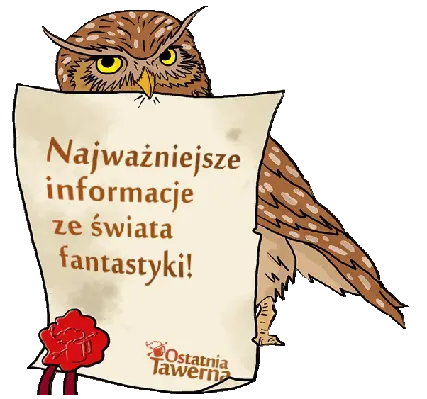Heaven for everyone
Let’s start calmly with the third volume of the hexalogy. The former had left Dora, Miron, and Joshua in the Triumvirate, alive but deeply dug up. They had defeated the primal evil that directly threatened them and the magical community as a whole, but it was clear that they would face a “boss” who posed a real threat.
There are no truly black and white characters in the world of Thornverse, although Raphael is undoubtedly close to absolute darkness, even for an angel – you already know that apart from one feathered blues, they are unlikely to belong to Dora’s favorite breed. This time the witch will face an exceptionally tough and strong opponent … Along the way, like her, she will adopt a few new “lame ducklings” and get mixed up in the affairs of hell – in the end, “the sky is not the limit no more”, as Casablancas sings. She is facing great and old things, forgotten deities, seeking, as in the American gods , the remnants of faith. The plot in Winner Takes Allit is much more consistent than before. The psyche of the characters also gained credibility – they do not suddenly forget about people who are important to them, which I have been complaining about recently.
The first releases of Soul Stealer and Winner are one year away. Jadowska clearly improved her skills at that time, but her heroine did not change anything, maybe she gained body and expressiveness. No wonder, barely two months have passed in her world. She managed to die, fall in love with reciprocity, mix up intersystemic relations and show some nasty types their place … But she had no time to figure it out in her head, she had no way to find. No wonder that the first chapters are spent on “family” quarrels.
The winner takes it all, a lot of action, a bit of digging and sword fights, a lot of romance tailored to D. Oswald Heist … This time the theme of creating a herd is very clear – a witch with a wolf pedigree will find many people in an ideal heavenly system that she has avoided for centuries justice. Let me just say that this thread will appeal to fans of Stranger Things and has a lot of YA in it.
Now seriously
While reviewing the first volume, I wrote that the red-haired witch is the heroine we have been waiting for. It was certainly the case in 2012, when Jadowska’s book debut was published, hasn’t changed much since then. Dora is a textbook example of a liberated, independent woman. Even if she comes across the romantic plot almost immediately, it is not what defines her. Maybe she has too few girlfriends to deserve the position of the feminist heroin of our era … Well, and she nurtured a bit of racial prejudice … All these “buts” could be heard in reviews and interviews for a long time.
Recently I had the opportunity to chat with fellow reviewers about this urban fantasy series. Hence my need to write about hexalogy seriously. Perhaps it is worth considering whether Jadowska is twisting us into exaggerated Mary Sue, an unpleasant chick who hates other girls, into a heroine full of prejudices. And even worse, in Harlequin that glorifies violence.
I understand a little why such conclusions may arise while reading The Soul Stealer. Dora introduces herself as a not very gifted witch, and then defeats a much stronger opponent. I don’t like the term “maryism” because in itself it is chauvinistic and discriminatory by pointing to the gender of an excessively strong character. I’m also concerned that the power discussions are getting dangerously close to the proverbial endless calculations of whether Wonder Woman would win against Superman or vice versa. To sustain the discussion, let me just remind you that the “little witch” usually wins only with a lot of support from friends, guardians and her Goddess. He has a lot of complexes. Besides, like every X-Men or important character from the “Chinese fairy tale” about dragon balls, she has no idea what she can do. I am convinced that it is in these literary genres that we should look for determinants of what the hexalogy “falls out”, and that means big outbursts, drama, and sometimes exaggerated skills. They do not mean spoiling the heroine, but referring to the convention.
I find it much more interesting to accuse Dora of prejudices. In fact, when we get to know her, she has plenty of them. They allow her to keep her distance from a magical world that is supposed to seem unattractive and full of weirdos. Life radically deprived her of this mechanism – she had to marry wolves, she adopted vampires. As a person full of emotions, she still hates – but only specific characters. He now makes up for his knowledge by trying to understand and remember the rules and regulations of each community to which he belongs more and more. Isn’t that exactly the character development we’d like? From one filled with aversions to one open to otherness?
Is hexalogy harlequin? Interpersonal relationships are important in it. Most of the positive characters love Dora more or less, and the world created by Jadowska has different moral principles regarding close contacts, including sex, than ours. Especially when we think about the conservative part of society. I specifically mentioned Heist, the author of the romances that changed the way the characters of the Saga perceive others. Vaughan and Staples may have a better workshop, but the idea is the same – love, in any form, will save the world. So it’s not worth trying to force it up to someone else’s standards. You may disagree with the authors, but that doesn’t mean the book or comic is bad.
It’s best to have everyone
The strongest motivation of Dora Wilk, witches, wolfs, vampires, is to have everyone she loves with her. If it is in her power, she will save everyone so that he can come over to her house for coffee or wine. A real herd has to be big, strong and harmonious! A real wolf to have his place in the hierarchy, but also to know freedom. She is not a hippie, even more so, Gandhi, but he certainly agrees with them when it comes to the power of love.
Graphics: https://www.wsqn.pl/media/?dir=zwyciezca%20bierze%20wszystko%20-%20aneta%20jadowska%20%28dora%203%29

